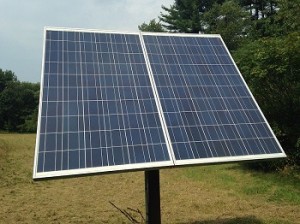New solar energy record set in Australia
December 10, 2014Research team breaks world record in solar energy production efficiency
Researchers from the University of New South Wales in Australia have set a new record solar energy efficiency. The research team made use of solar cells that are commercially available, but opted to use these cells in a new way. This allowed the team to improve the efficiency of solar panels by a significant degree, meaning that these energy systems were able to generate electrical power more effectively than their conventional counterparts.
40% of sunlight converted to electrical power by solar panels in Australia
During outdoor tests, the research team was able to convert 40% of the sunlight hitting solar panels into electrical power. This marks the highest degree of production efficiency that has been recorded from any solar energy system in the world. The results were confirmed during outdoor tests conducted by the National Renewable Energy Laboratory in the United States as well. The University of New South Wales had already established a significant efficiency record in 1989, being the first to reach the 20% efficiency level with solar power systems.
Panels make use of commercially available materials, making them somewhat inexpensive
 The solar panels used by the research team make use of an optical bandpass filter, which is capable of capturing more sunlight. With conventional solar panels, much of the sunlight that hits solar cells goes to waste because it cannot be captured effectively. Notably, the solar panels used by the research team are not cripplingly expensive, as they make use of commercially available materials.
The solar panels used by the research team make use of an optical bandpass filter, which is capable of capturing more sunlight. With conventional solar panels, much of the sunlight that hits solar cells goes to waste because it cannot be captured effectively. Notably, the solar panels used by the research team are not cripplingly expensive, as they make use of commercially available materials.
Investing in Australia’s renewable energy sector may have many benefits
The project from the University of New South Wales was funded by the Australian Renewable Energy Agency, which suggests that this recent milestone is a demonstration of the value of Australia’s energy ingenuity. The organization suggests that investing more in clean technology and renewable energy may be a favorable practice. The Australian government, however, has been growing less fond on clean energy over recent years, opting to show more support for fossil-fuels and more traditional forms of power.

 With over 15 years of reporting hydrogen news, we are your premier source for the latest updates and insights in hydrogen and renewable energy.
With over 15 years of reporting hydrogen news, we are your premier source for the latest updates and insights in hydrogen and renewable energy.